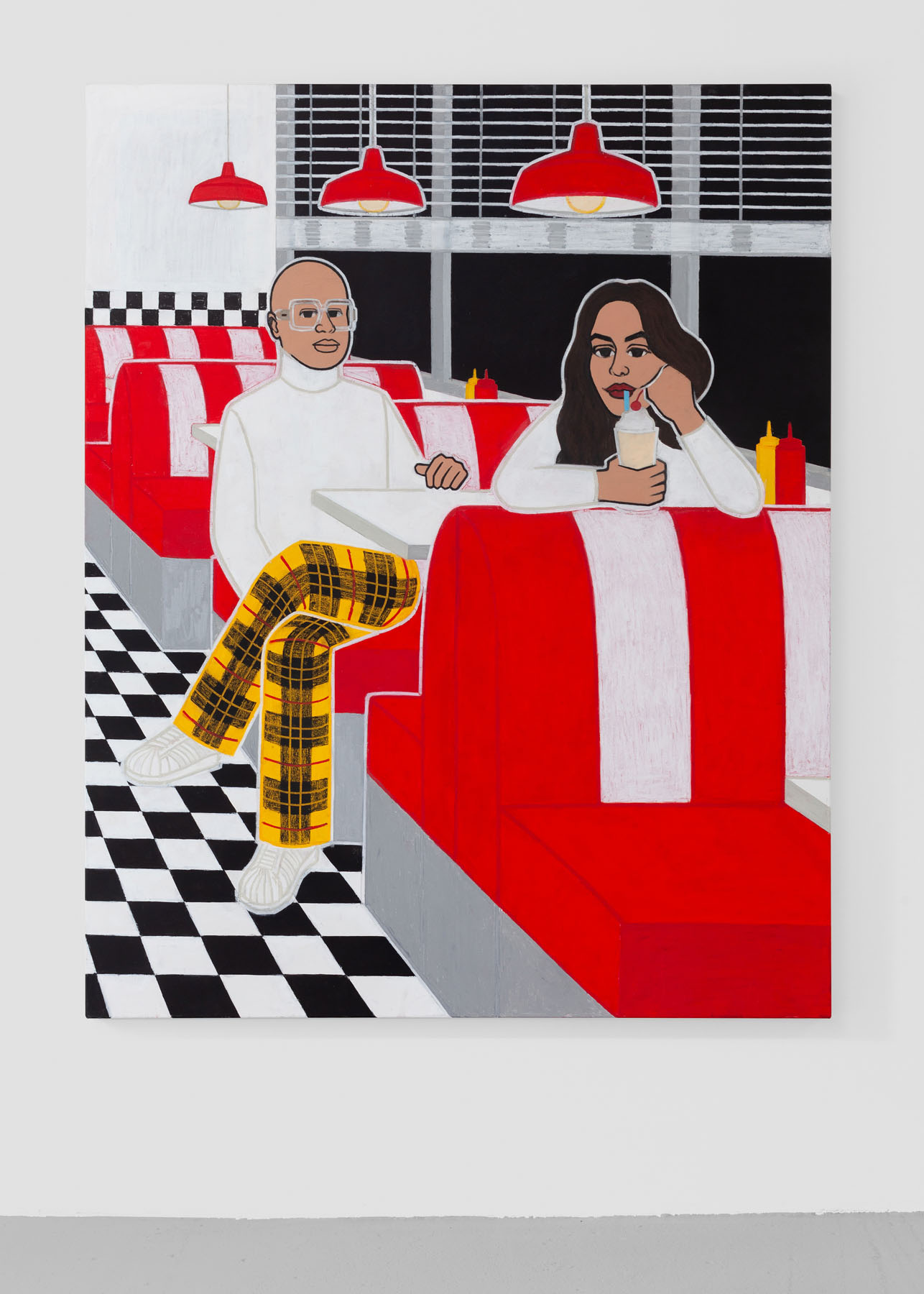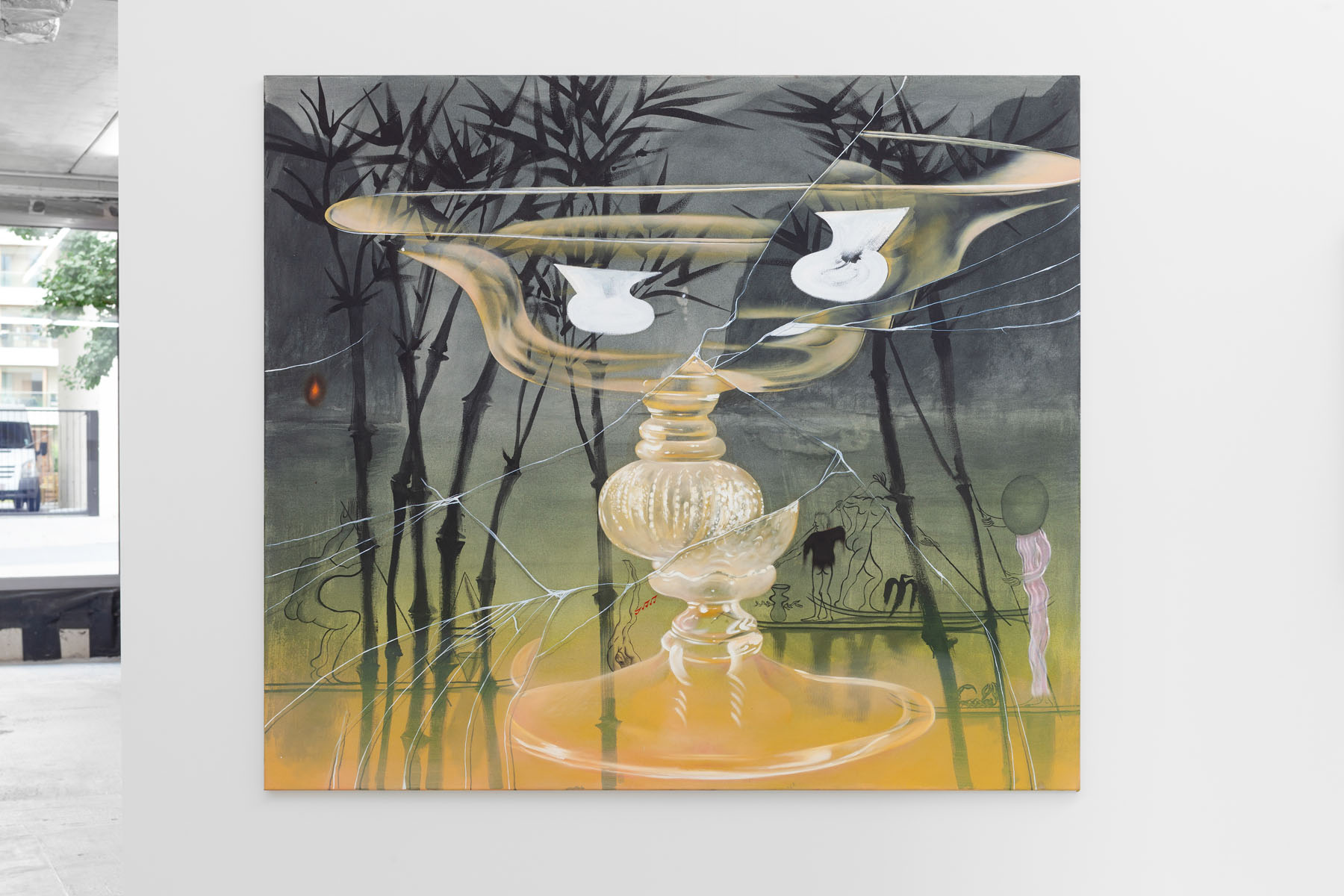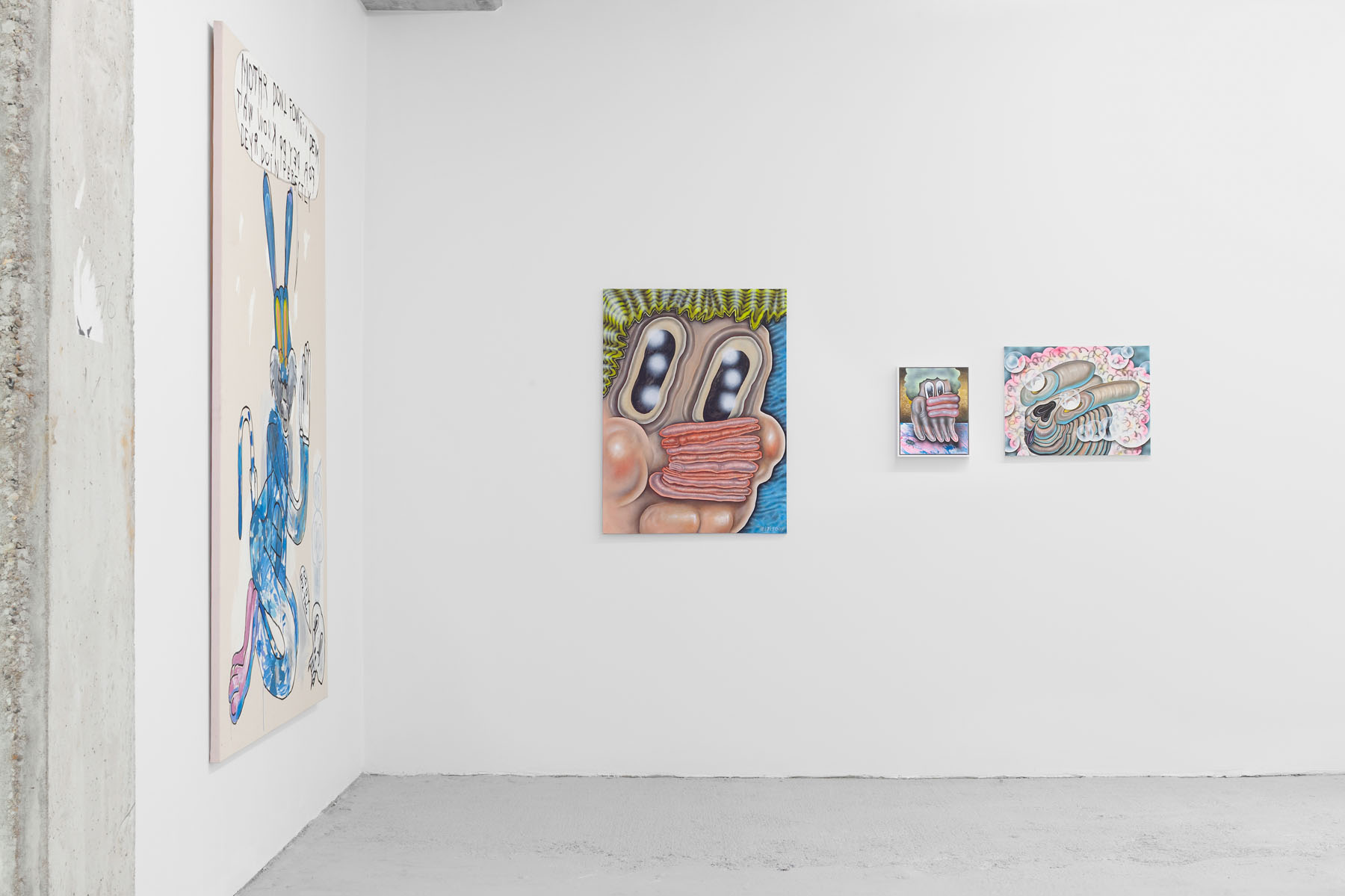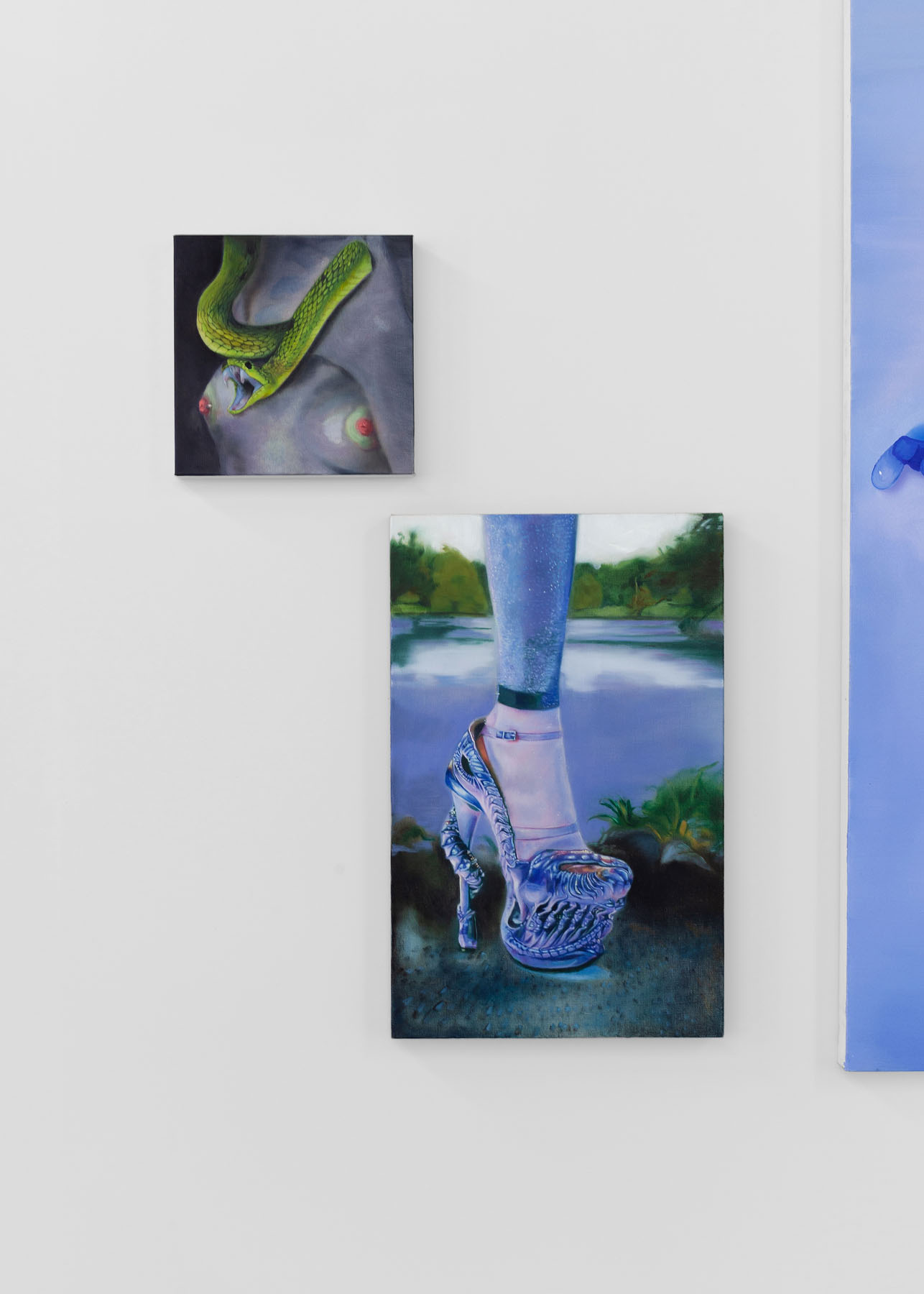Artists: Adrien Vermont, Amadeo Morelos, Bijijoo, Botond Keresztesi, Ciro Duclos, Daan Gielis, Daniel Van Straalen, Douglas Cantor, Elissa Lacoste, Elsa Rouy, Etienne Marc, Floris Van Look, Georgina Clapham, Hugo Avigo, Jacopo Pagin, Jean-Baptiste Janisset, Jordy Kerwick, Liam Fallon, Loïc Devaux, Mahsa Merci, Maria Fragoso, Mariah Ferrari, Mark Connolly, Marria Pratts, Messgewand, Natacha Mankowski, Nicolas Holiber, Orson Oxo Van Beek & Quinten Mestdagh, Raven Halfmoon, Rebecca Brodskis, Robuche, Serban Ionescu, Sophie Vallance, Stef Van Looveren, Stephane Abitbol, Thomas Ballouhey, Tom Volkaert, touche—touche, Tramaine de Senna, Valentin Vie Binet & Romy Texier, Victor Delestre, Xander Faes
Exhibition title: Limbo
Venue: Everyday Gallery, Antwerp, Belgium
Date: September 5 – October 4, 2020
Photography: all images copyright and courtesy of the artists and Everyday Gallery, Antwerp
“Hamm: What’s happening?
Clov: Something is taking its course.”
Samuel Beckett, Endgame
“The crisis consists precisely in the fact that the old is dying and the new cannot be born; in this interregnum a great variety of morbid symptoms appears.” Antonio Gramsci, The Prison Notebooks
For better or for worse, we are living through what may well become one of the defining moments of the twenty-first century. This much we know. What we do not know, is which turn current events will take. COVID-19 and Black Lives Matter may catapult the world in further turmoil, accelerating the global ecological catastrophe and fuelling further outbursts of systemic racism. But they may also prove to be a political and ecological turning point, an ultimate wake up call leading to racial justice as well as climate justice.
Not knowing which direction events will take, is what puts us in limbo: clearly, the old structures are dying or becoming untenable – but whether new forms of life, a new relation to nature and a renewed engagement with racial and ecological equality will emerge remains entirely unclear at this point.
LIMBO is first of all an attempt to capture the ambience of transience and uncertainty that has characterized 2020 so far. Bringing together over forty emerging artists, Everyday Gallery’s latest show is not an attempt to articulate a way out of the current impasse that society finds itself. Neither is it an attempt to stake out a new generation of artists or a new artistic agenda. Instead, it wants to be an expression of the multifarious feelings of distress, anger, frustration, but also hope and belonging that many of the participating artists, like so many of us, have experienced in the past six to eight months. Exhibiting works that were made over the past couple of months, this exposition follows hot on the trail of unmediated distress and turmoil. And yet it also searches for new forms, new ways of engaging with the world in the wake of what we have experienced.
In that context, it is telling that so many of the works exhibited in LIMBO engage with what lies beyond the human. A crucial part of the imagery in this exposition revolves around the animalistic. At first sight, that imagery may seem joyous and relatively innocent. But underlying it is a darker truth. LIMBO presents a younger generation of artists that plays with the seemingly reductive language of memes and cartoons. The hollow eyes of its cartoonesque depiction of animal life and neon-shaped memes express the tragic nature of our situation: memes compressed information, saying very much with very little, but they are also a reduction of meaning, reducing its to all too simple forms. Likewise, cartoons depict animals, but they turn them into funny, human-like forms that do not do justice to what really lies beyond the human. As much as these artists seem to want to escape their current situation and the society that has caused it, their cartoonesque and meme-like aesthetics still squarely places that desire for escape within the confines of human society. Here, again, we are caught in limbo.
And yet, if the events of the past six months have made anything clear, it is how fragile human society and human lives can be. LIMBO is a first attempt to come to terms with this fact without claiming to have any answers. It shows us a world on the threshold of something new, but still struggling with the old. We do not know yet where this is going, or what will become of it. We are waiting for something is taking its course.






























